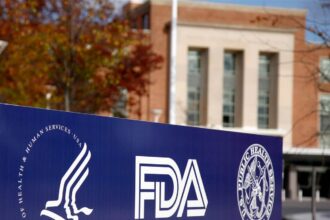Tension headaches are a nearly universal affliction. They are characterized by dull, non-pulsatile discomfort on both sides of the temples and forehead. They typically last for 30-60 minutes, but they can go on for days. Tension headaches affect at least 40% of adults in any given year. Nearly 80% of adults have experienced at least one during the course of their lifetimes.
It’s amazing therefore, that scientists don’t yet understand what causes them.
Triggers To be sure, scientists and those who’ve experienced tension headaches know when they tend to occur and what things trigger them.
Tension headaches occur most commonly in the early morning and late afternoon. The morning variety is often triggered by lack of sleep, awkward sleeping positions, hangovers and caffeine withdrawal.
Afternoon tension headaches are triggered by poor posture or airborne irritants in the office, eyestrain from looking at a computer screen all day, teeth grinding, and plain-old everyday stress (see YouTube video, above). The hypoglycemia associated with missed lunches is another culprit, as is excessive caffeine intake.
But What Causes Them? This is what scientists don’t yet understand. For years, the prevailing theory was that muscle tension, especially in the neck and shoulders, caused tension headaches. That theory has been disproven by studies in which tools that measure muscle contractions revealed no correlation between muscle tension and headaches.
Today, the prevailing belief is that the tension-type headache is caused by abnormalities in parts of the brain that perceive pain. These poorly understood abnormalities render the brain hypersensitive to the inputs it receives (similar mechanisms are also thought to be involved in fibromyalgia, a disorder characterized by diffuse bodily sensations of pain).
Treatment Typically, tension headaches sufferers just “bear with them” until they subside, or use OTC pain killers like aspirin, acetaminophen and ibuprofen for quick relief. These drugs usually work, but taking them more than 10 days per month can precipitate so-called “rebound” or “medication-overuse” headaches, which feel like the tension headaches they’re supposed to treat.
Tricyclic antidepressants like imipramine and amitriptyline appear to prevent tension-type headaches in people who get them frequently. They are effective in much lower doses than what is required to treat depression. Even in these lower doses however, tricyclics are associated with side effects like drowsiness and dizziness. Other drugs like muscle relaxants, anti-epileptic drugs and even anti-migraine drugs have been used to prevent tension headaches.
There also is some evidence that regular aerobic exercise, a sensible diet (including less caffeine and alcohol), yoga, massage, biofeedback and acupuncture can be effective.
Could it be Cancer? Well, nearly ¾ of brain tumors present with symptoms similar to those of a tension headache. Then again, only about one in 200 patients who present to physicians for the evaluation of a headache are found to have a tumor.
That said, folks who have a chronic headache, frequent headaches, and headaches associated with neurological symptoms should see their doctors. The same applies for those who haven’t had success controlling their headaches with an occasional OTC pain reliever and the lifestyle changes mentioned above, and those who are worried about, or simply want more information about their headaches.
That’s what physicians are there for!







